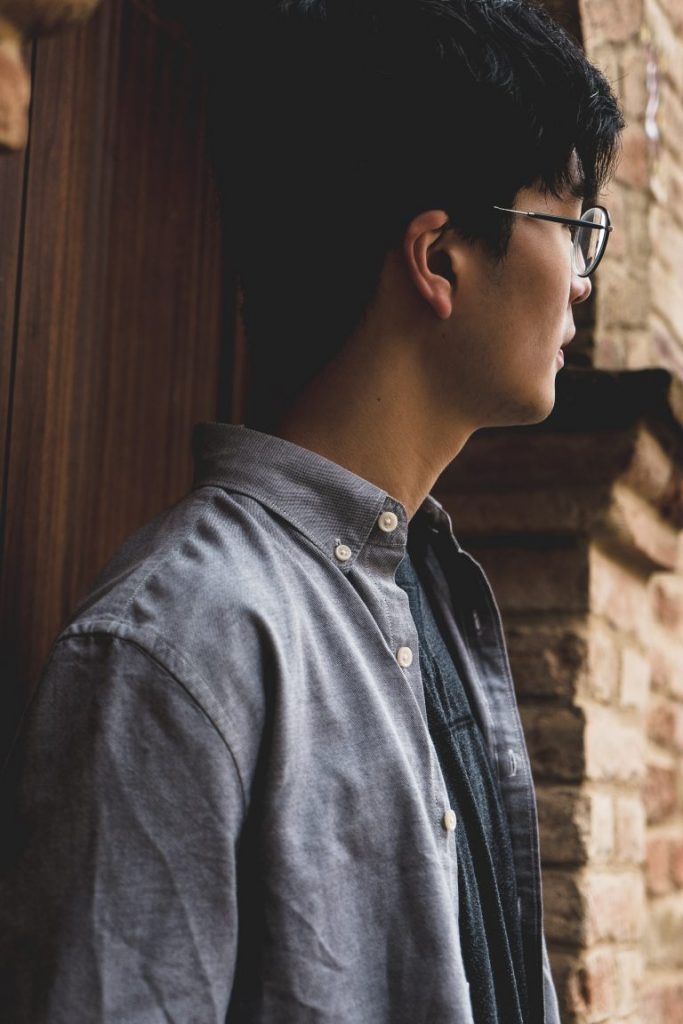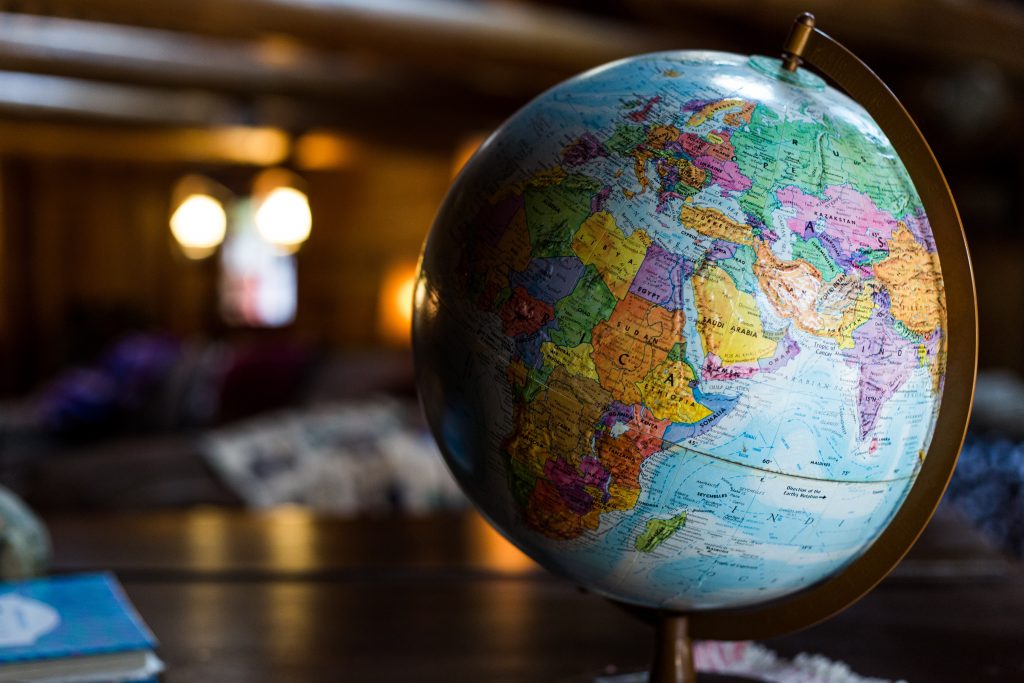Concern for Britons feeling trapped and lonely during lockdown (Libby Brookes, The Guardian, 19 April)

Loneliness NZ is intent on conquering loneliness in New Zealand. We are at the forefront of efforts to prevent Kiwis becoming lonelier.
Our self-help resources support and expand on Government campaigns and tools that were embarked on in the Covid-19 pandemic, with a focus specifically on preventing loneliness, or preventing the experience of more loneliness for those already lonely.
Additionally, we provide counselling to registered individuals who experience prolonged loneliness via Zoom (video conferencing platform).
Let us introduce our self-help resources, and what they are about.

We have developed a suite of resources to help prevent loneliness of yourself and others. While some of these were designed during the COVID-19 coronavirus pandemic, they nonetheless have useful information in them.
Making every day in COVID-19 isolation not a lonely day provides guiding principles to conquer loneliness in isolation, and provides ideas to add into your day.
Nurturing close friends gives you a realistic understanding of what it takes from two people (or each individual in a group) to create, develop, and maintain meaningful relationships (emotionally close friendships) that are mutually beneficial to all.
Developing close circle of friends talks about your close circle of friends – people you have – or could have – meaningful relationships with.
Understanding each other better for bubble-life in COVID-19 isolation aims to help people in their bubbles or living alone to thrive harmoniously. It examines our positive influence on others, how we replenish our energy, discussing each others’ needs and wants, and balancing our optimism and pessimism for wellbeing.
Making indoor routines work for everyone during COVID-19 bubble life provides practical advice on how to create balanced indoor routines during lockdown. These routines incorporate familiarity, thoughtfulness, flexibility, mindfulness, and creativity.
Avoiding loneliness in our COVID-19 world discusses what is common between COVID-19 and loneliness, with tips on how to avoid loneliness in ourselves and others.
Connected and still feeling lonely explains that there are many reasons why being connected may not in itself be enough to prevent loneliness. If you need further help, consider using a Loneliness NZ mentor to guide you in what steps you can take to help yourself become less lonely.
Download our loneliness prevention tips provides ways to download our tips as resources (e.g. on a Windows PC lock screen), that remind and help ingrain new behaviours that may prevent loneliness.
To help you further understand loneliness and how to prevent it in a COVID-19 world, we have curated and categorized a selection of national and international media articles related to COVID-19 and loneliness.
Self-help to prevent loneliness
Loneliness and social isolation in the time of COVID-19 (Australian Psychology Society, June 2020)
Managing employees’ feelings of loneliness during the COVID-19 pandemic (Naomi Thompson, HR Director, 16 June)
We all need human connection (Interview with Dr Vivek Murthy, RNZ, 16 June) COVID-19: Linda Blair on the importance of friendship (Interview with Linda Blair, RNZ, 10 May) COVID-19: Loneliness is the other great threat (Peter Mills, HR Director, 21 April) Coronavirus hacks: How to build better relationships remotely (Emily Kasriel, BBC, 13 April) COVID-19: how to cope with loneliness during the coronavirus pandemic (Lydia Smith, Patient.info, 9 April) Combating loneliness and isolation in college students during the COVID-19 pandemic (PR Newswire, Yahoo! Finance, 7 April) Increasing social connection while “social distancing” (Alica Lieberman and Juliana Schroeder, Behavioral Scientist, 30 March) How to cope with loneliness during the coronavirus pandemic (Arlin Cuncic, Very Well Mind, 27 March)
A call for manaakitanga in a time of isolation (Vanessa Burholt, UniNews, University of Auckland, 26 March)
Four ways to help prevent loneliness while you’re social distancing (Amanda Ripley, The Washington Post, 17 March) Social distancing can make you lonely. Here’s how to stay connected when you’re in lockdown (Michelle Lim and Johanna Badcock, The Conversation, 17 March) How to prevent loneliness in a time of social distancing (Kasley Killam, Scientific American, 12 March)
Public policy and loneliness
Covid 19 coronavirus: People on low incomes lonelier during lockdown – report (NZ Herald, 24 June)
Loneliness and the digital divide (Holly Walker, Stuff, 24 June)
Guaranteed minimum income needed to cure loneliness epidemic after COVID-19 – Helen Clark Foundation (Dan Satherley, Newshub, 24 June)
£5 million Loneliness Covid-19 Grant Fund (UK Government, 13 May)
How virtual mentoring is closing the loneliness gap during COVID-19 (Tanya Tarr, Forbes, 12 May)
How our leaders can minimise the negative effects of loneliness after COVID-19 (Holly Walker, The Spinoff, 1 May)
We need to flatten the “other” coronavirus curve, our looming mental health crisis (Stephen Corbone and Antony Jorm, The Conversation, 30 April)
Can social prescribing support the COVID-19 pandemic? (Stephanie Tierney, Kamal R. Mahtani, Amadea Turk, Centre for Evidence-Based Medicine, 25 March)
NZ surveys of loneliness during COVID-19 pandemic
The COVID health and wellbeing survey (Weekly survey, Ministry of Health)
| 30 Mar – 5 Apr | 6-12 Apr | 13-19 Apr | 20-26 Apr |
In general, would you say your health right now is … lonely/isolated | 31% | 33% | 37% | 35% |
30 Mar – 5 Apr: Over the past seven days, how often have you felt lonely or isolated?
All of the time | 2% |
Most of the time | 3% |
Some of the time | 9% |
A little of the time | 17% |
None of the time | 69% |
Lack of social connection with elderly a big issue for Kiwis (Interview with Emanuel Kalafatelis of Research New Zealand, RNZ, 26 April)
The survey found that:
Coronavirus: Elderly handling the loneliness of lockdown better than their grandkids – survey (Dan Satherley and Perry Wilton, Newshub, 20 April)
A price of lockdown: 215,000 New Zealanders want help to cope (Grant McInman and Graeme Colman, Horizon Research, 19 April)
Excerpt from survey results:

International surveys of loneliness during COVID-19 pandemic
Global survey on COVID-19 launched in New Zealand (University of Auckland, 4 June)
Amid COVID-19, millennials are (still) the loneliest generation (Jamie Ballard, YouGov, 2 May)
47% of Americans say they feel more lonely than usual during COVID-19 according to a ValuePenguin.com survey (P&T Community, PRNewswire, 29 April)
Quarter of UK adults say lockdown has made them ‘feel lonely’: Young people aged 18 to 24 found to be the most affected (Sarah Young, Independent, 22 April)
Excerpt: “…with the most affected group found to be young people aged 18 to 24 – 44 per cent of which admitted to experiencing loneliness. The next most affected group were adults aged 25 to 34, with 35 per cent saying they had felt lonely as a result of the Covid-19 pandemic…”
COVID-19 lockdown measures leading to increased loneliness and depression in Ireland (Harry Brent, The Irish Post, 16 April)
More than half of Canadians feel lonely, isolated during coronavirus pandemic: Ipsos poll (Meghan Collie, Global News Ipsos, 10 April)
Survey results: Understanding people’s concerns about the mental health impacts of the COVID-19 pandemic (Collated by Katherine Cowan, on behalf of MQ: Transforming Mental Health and the Academy of Medical Sciences, April)
Link betweeen COVID-19 and loneliness
Doug Wilson: how older people are feeling about the pandemic (Interview with Doug Wilson, RNZ, 23 May)
COVID-19 and loneliness: Can we do anything about it? (Ami Rokach, Elsevier Connect, 22 May)
Here’s What Loneliness Can Do to You During COVID-19 (Suzanne Kane, PsychCentral, 14 May)
Loneliness, anxiety and the invisible enemy: How mental health professionals are helping some of our most vulnerable through COVID-19 (Mark Quinlivan, Newshub, 12 May)
COVID-19 is making America’s loneliness epidemic even worse (Jamie Ducharme, TIME, 8 May)
Coronavirus: Calls to Lifeline surge 25% during COVID-19 lockdown (Denise Piper, Stuff, 5 May)
This pandemic is lonely, but don’t call loneliness an ‘epidemic’ (Matt Simon, interview with Fay Bound Alberti, Wired, 8 May)
Why COVID-19 loneliness can be especially hard on teens (Geoff McMaster, Medical Xpress, 4 May)
Loneliness is a modern invention. Understanding that history can help us get through this pandemic (Fay Bound Alberti, TIME, 29 April)
Combating loneliness in the age of COVID-19 on ‘Next question’ (Radio interview with Dr Vivek Murthy, former Surgeon General of the United States, iHeart radio, 21 April)
Concern for Britons feeling trapped and lonely during lockdown (Libby Brookes, The Guardian, 19 April)
Before coronavirus we were dying of loneliness. Can a pandemic help America heal? (Jen Rose Smith, CNN, 17 April) Coronavirus lockdown: LGBTQ people face hostility and loneliness (Rohit Dasgupta, The Conversation, 17 April) Extended lock-down could create additional risks for older people’s health (University of Otago media release, NZ Doctor, 15 April) COVID-19: Who are the lonely in New Zealand? (Interview with Hannah Hawkins-Elder, Sunday Morning, Radio New Zealand, 12 April) Loneliness of social distancing during COVID-19 crisis might trigger craving similar to hunger (CBS Chicago, 11 April) Those most vulnerable to virus also most at risk of loneliness in lockdown (Heidi Harrington-Johnson, Newsroom UNSW, 31 March) In a time of distancing due to coronavirus, the health threat of loneliness looms (Joanne Silberner, Stat News, 28 March) The psychological impact of COVID-19 isolation, as explained by scientists (Andrew Tarantola, engadget, 27 March) COVID-19 is coinciding with a loneliness epidemic (Michael Lee Stallard and Katherine P. Stallard, Government Executive, 26 March) Mental health in a pandemic state: The route from social isolation to loneliness (Renato Alarcón, Psychiatric Times, 25 March) How loneliness from coronavirus isolation takes its own toll (Robin Wright, The New Yorker, 23 March) Guest opinion: The dangerous side effect of COVID-19 that no one is talking about (Katie Jarvis, Deseret News, 22 March) ‘Social recession’: how isolation can affect physical and mental health (Adam Gabbatt, The Guardian, 18 March) COVID-19 poses an unequal risk of isolation and loneliness (Carrie Henning-Smith, The Hill, 18 March) Coronovirus will also cause a loneliness epidemic (Ezra Klein, Vox News, 12 March)
Lonely COVID-19 patients
Overwhelming, lonely, stressful – life in a COVID-19 unit in Geneva (Katherine Zimmerman, Medecins Sans Frontieres, 27 April)
Through glass or from a distance, Orlando Health chaplains comfort COVID-19 patients | Commentary (David Whitley, Orlando Sentinel, 24 April)
Existential suffering and loneliness with COVID-19 (John Y. Rhee, Medpage Today, 30 March)
Loneliness as risk factor for COVID-19
Can stress, loneliness, and sleep deprivation make you more prone to COVID-19? (Alex Orlando, Discover magazine, 31 March)
Loneliness and stress may put you at greater risk for COVID-19 (Marla Milling, Forbes, 20 March)

For a more detailed study of the connection between COVID-19 and loneliness, we have curated and categorized a selection of national and international academic articles related to COVID-19 and loneliness.
Life in lockdown: The economic and social effect of lockdown during Alert Level 4 in New Zealand (Kate C. Prickett, Michael Fletcher, Simon Chapple, Nguyen Doan, and Conal Smith, Victoria University of Wellington, Working Paper 20/03, June 2020)
Excerpt: “Job and income loss were associated with greater anger, depression, stress, worry, and loneliness, and lower happiness.”
Investigating the short-term effects of the COVID-19 pandemic and nationwide lockdown on institutional trust, attitudes to government, health and wellbeing (Sibley et al., PsyArXiv preprints, 22 April)
Excerpt: “In sum, the general picture for health and wellbeing was one of resilience. The findings indicate that the initial stages of the pandemic and lockdown had minimal short-term detrimental effects on physical health and subjective well-being, perhaps in part because of increases in community connectedness.”
International academic articles
Loneliness: A signature mental health concern in the era of COVID-19 (William Killgore, Sara Cloonan, Emily Taylor, and Natalie Dailey, Letter to the editor, Psychiatry research, vol. 290, August 2020)
The trajectory of loneliness in response to COVID-19 (Martina Luchetti, Ji Hyun Lee, Damaris Aschwanden, Amanda Sesker, Jason Strickhouser, Antonio Terracciano, and Angelina Sutin, American, Psychologist, 22 June)
COVID-19 Rapid Review – Video calls for reducing social isolation and loneliness in older people (Chris Noone, Cochrane, 5 June)
Social isolation and loneliness among older adults in the context of COVID-19: a global challenge (Bei Wu, GLobal health research and policy, vol. 5, 5 June)
Depression and loneliness during COVID-19 (Indiana University, 5 June)
Addressing Loneliness in the Era of COVID-19 (Nicholas Trad, Frank Wharam, and Benjamin Druss, Social Determinants of Health, JAMA Health Forum, 1 June)
Social isolation in COVID-19: The impact of loneliness (Debanjan Banerjee and Mayank Rai, International Journal of Social Psychiatry (editorial), 29 April)
COVID-19, social isolation and loneliness (Robert Sanders, literature review, Iriss, 22 April)
Lockdowns, loneliness and life satisfaction (Daniel Hamermesh, IZA Institute of Labor Economics, Germany, April)
Multidisciplinary research priorities for the COVID-19 pandemic: a call for action for mental health science (Emily Holmes et al., The Lancet Psychiatry, 15 April)
Excerpt: “A major adverse consequence of the COVID-19 pandemic is likely to be increased social isolation and loneliness (as reflected in our surveys), which are strongly associated with anxiety, depression, self-harm, and suicide attempts across the lifespan. Tracking loneliness and intervening early are important priorities. Crucially, reducing sustained feelings of loneliness and promoting belongingness are candidate mechanisms to protect against suicide, self-harm, and emotional problems.”
Loneliness, social connection and COVID-19 (Jane Farmer et al., Centre for Social Impact, Australia, April)
Safe but lonely? Loneliness, mental health symptoms and COVID-19 (Lukasz Okruszek et al., PsyArXiv Preprint, 10 April)

We include several sites that will be helpful to your mental wellbeing, even though many of these sites do not talk specifically about loneliness.
The New Zealand Government advisory website Covid19.govt.nz has pages on mental wellbeing that you may find interesting.
COVID-19: Wellbeing at alert level 4 provides some tips on how to get through alert level 4 lockdown.
Looking after your mental wellbeing provides ways to look after your mental health, and contacts if your are not coping with grief, anxiety, stress, or mental wellbeing.
Looking after others encourages you to be kind by checking in on vulnerable people and older relatives; calling family, friends, and neighbours; and dropping off essential supplies.
Getting through together and Sparklers at home
Getting through together and Sparklers at home are Government sponsored campaigns that provide tips to get through the COVID-19 pandemic.
Mental wellbeing apps and on-line courses
Mentemia, Melon, and Staying on track are Government sponsored apps and on-line courses to manage mental wellbeing.
World Health Organisation
On 18 March, the World Health Organisation released Mental health and psychosocial considerations during the COVID-19 outbreak.
